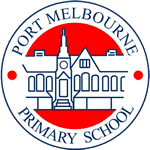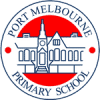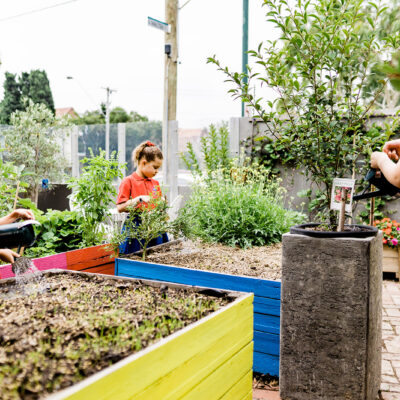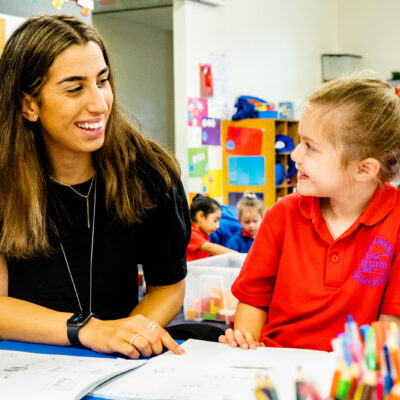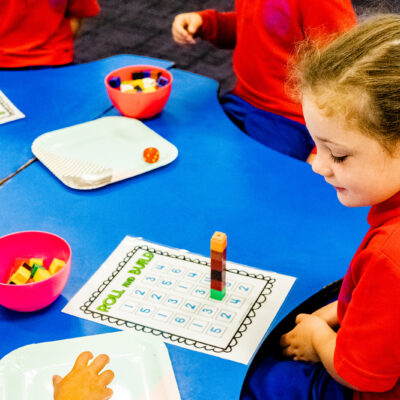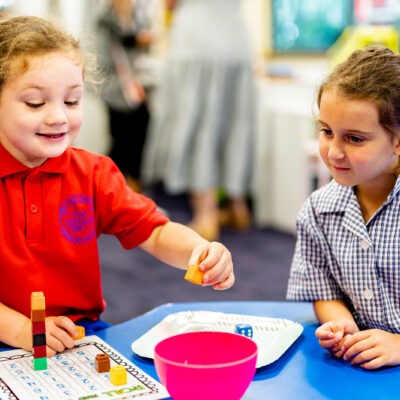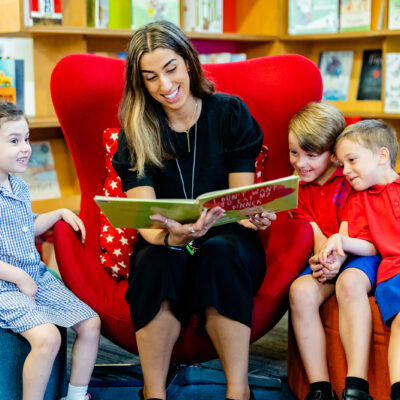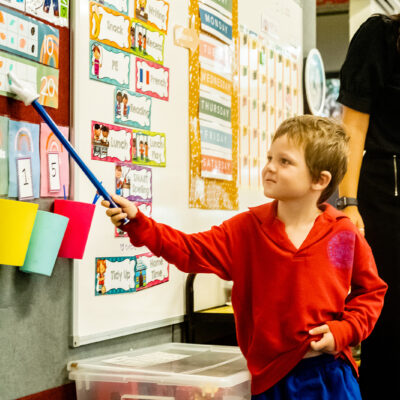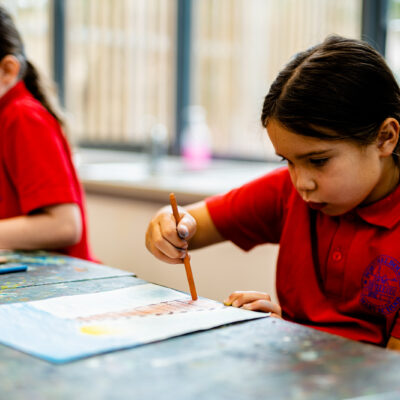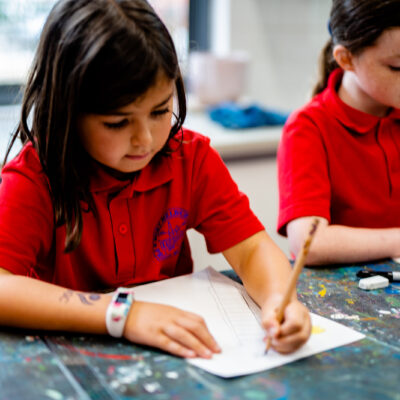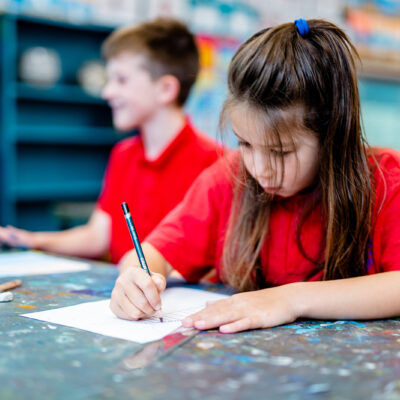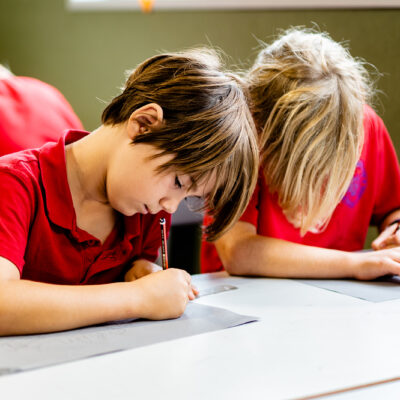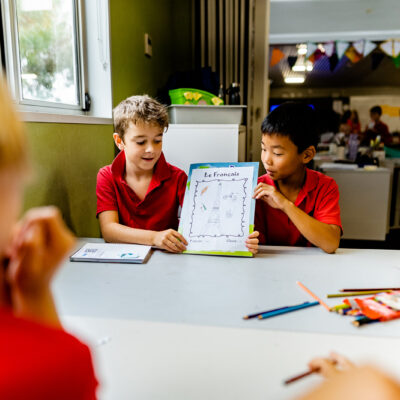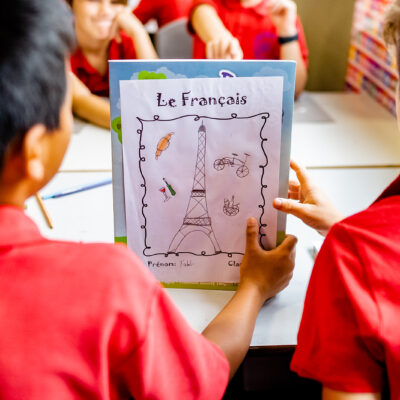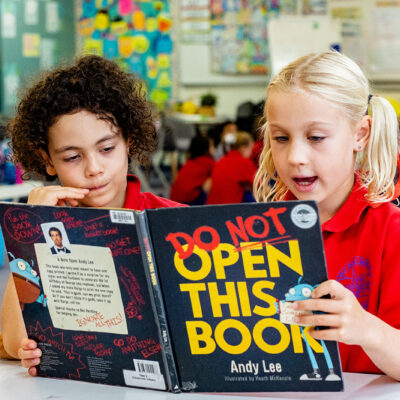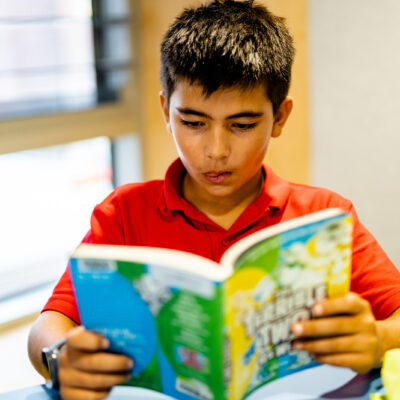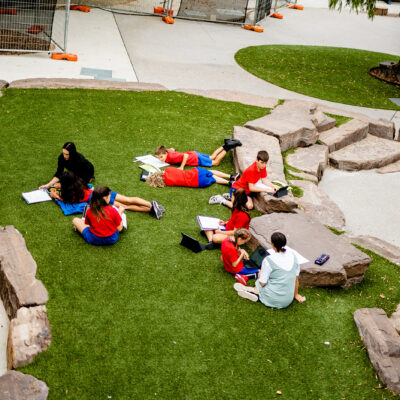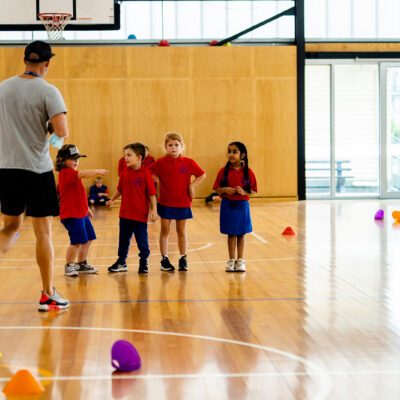Learning at Port Melbourne Primary School
We're driven by a rigorous commitment to academic excellence, a deep curiosity for learning, and an unwavering dedication to your child's success. We believe in the power of co-teaching, harnessing the unique skills of two professionals to create an enriched learning environment. Collaboration is at the heart of what makes our school special, fostering a community that thrives on shared knowledge and growth. From the very first day they step into our classrooms to the journey that stretches far into the future, we're here to provide a unique and meaningful learning experience.
At Port Melbourne, curriculum planning is a collective effort, transcending individual teachers. We are dedicated to ensuring every student receives a premium education throughout their primary years.
Our curriculum is comprehensive, encompassing both skill and knowledge areas. This includes discipline-focused subjects like English and Mathematics, as well as broader competencies such as critical and creative thinking, personal and social skills, intercultural insights, and ethical understanding.
Victorian Curriculum F–10
The Victorian Curriculum F–10 outlines the core content to be mastered by students during their initial eleven school years. This foundational curriculum equips students with vital knowledge and skills, fostering lifelong learning, social growth, and informed citizenship.
While integrating the Australian Curriculum, the Victorian Curriculum F–10 is tailored to reflect the distinctive priorities and standards of Victoria. Comprehensive insights into its structure and content are accessible here.
Learning Areas and Capabilities
The Victorian Curriculum F–10 strikes a balance between imparting knowledge and honing skills, categorised into learning areas and capabilities. The curriculum's design is rooted in the belief that these skills and knowledge are versatile and applicable across different subjects, thus eliminating redundancy.
For instance, capabilities like posing questions, evaluating evidence, or drawing conclusions, once defined under Critical and Creative Thinking, aren't reiterated in other subjects like History or Health and Physical Education. The expectation is for students to seamlessly integrate and exhibit these capabilities across various subjects.
Learning Areas:
- English
- Health and Physical Education
- Languages
- Mathematics
- The Arts:
- Dance
- Drama
- Media Arts
- Music
- Visual Arts
- Visual Communication and Design
- The Humanities:
- Civics and Citizenship
- Economics and Business
- Geography
- History
- Science Technologies:
- Design and Technologies
- Digital Technologies
Capabilities:
- Critical and Creative Thinking
- Ethical Understanding
- Intercultural Understanding
- Personal and Social Skills
